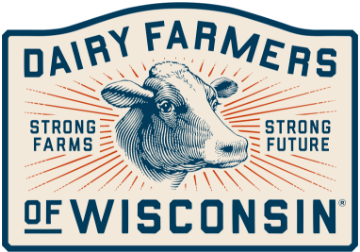Wisconsin News
Gov. Evers Kicks Off June Dairy Month Celebrating Wisconsin’s Dairy Industry and Proud Dairy Heritage

Gov. Tony Evers today kicked off June Dairy Month by celebrating and highlighting Wisconsin’s dairy industry, farmers and producers, and the state’s proud dairy heritage in his weekly radio address. Gov. Evers will be visiting with dairy farmers, processors, producers, and local community and agricultural industry leaders throughout the upcoming month to highlight the strength of the state’s dairy industry, as well as efforts and investments by the governor and the Evers Administration to support Wisconsin’s farmers, their families, and the dairy industry. A copy of the governor’s 2025 June Dairy Month proclamation is available here.
Wisconsin’s dairy industry is a significant part of the state’s cultural heritage and a central driver of the state’s economy. Here in “America’s Dairyland,” Wisconsin has more dairy farms than any other state in the nation that support a more than $50 billion industry in the state and over 120,000 jobs.
Gov. Evers has long been a champion for Wisconsin’s farm families, agricultural and farm industries, and rural communities, including creating the Wisconsin Initiative for Agricultural Exports to boost the export of dairy, meat, crop, and other products by 25 percent. Under Gov. Evers, Wisconsin is on its way to becoming a top 10 state in the country for agricultural exports. The governor previously created the Wisconsin Office of Rural Prosperity at the Wisconsin Economic Development Corporation to provide assistance to Wisconsinites in navigating state programs and resources tailored to rural communities, businesses, and workers.
The governor has also long advocated for increasing funding for meat and dairy processing to support the state’s supply chain and important initiatives such as supporting farmer mental health through increased funding for the Wisconsin Department of Agriculture, Trade and Consumer Protection’s (DATCP) Farmer Wellness Program through the Wisconsin Farm Center. Gov. Evers also approved an $8.8 million investment to support the development of the Dairy Innovation Hub at the University of Wisconsin System to boost dairy research and innovation. Additionally, Gov. Evers directed $100 million to support Wisconsin farmers in all 72 counties through the Wisconsin Farm Support Program.
Gov. Evers knows that farmers, farm families, and producers have been the backbone of our state for generations, so when President Donald Trump announced reckless tariff taxes and started picking fights with Wisconsin’s largest export partners, hurting Wisconsin’s economy and farmers, and driving up costs for gas and groceries, the governor got right to work. Gov. Evers proposed a state budget that invested over $80 million to support Wisconsin’s farmers and agricultural industries, including key efforts to help farmers and producers navigate economic volatility and uncertainty caused by irresponsible tariff taxes and trade wars, including:
- Increased staffing and funding for the Wisconsin Initiative for Agricultural Exports, which was created by Gov. Evers in 2021 to promote Wisconsin exports, to continue to support farmers and producers wanting to expand into new markets and increase output. The proposal also removes a cap on the total amount of funding that DATCP can expend per year, providing more flexibility for this initiative;
- An additional $1.2 million to support the Dairy Processor Grant Program, which supports Wisconsin’s dairy processors to support the state’s dairy supply chain;
- Creating a new pilot program to help support on-farm projects that improve resilience and efficiency of farm operations, including upgrading IT infrastructure or milking equipment;
- Increasing funding for the Buy Local, Buy Wisconsin and Something Special from Wisconsin marketing programs;
- Supporting the Food Security Initiative that connects food banks with local farmers and producers, as well as creating a Farm to Fork program to connect farmers with local entities that have cafeterias, like businesses, hospitals, and universities;
- Doubling funding for the farmer mental health support, including a 24/7 crisis helpline, counselor vouchers, and virtual counseling; and
- Additional funding for the Producer-Led Watershed Protection Grant Program that supports groups working to improve water quality and prevent runoff, among several other proposals, among several other proposals.


